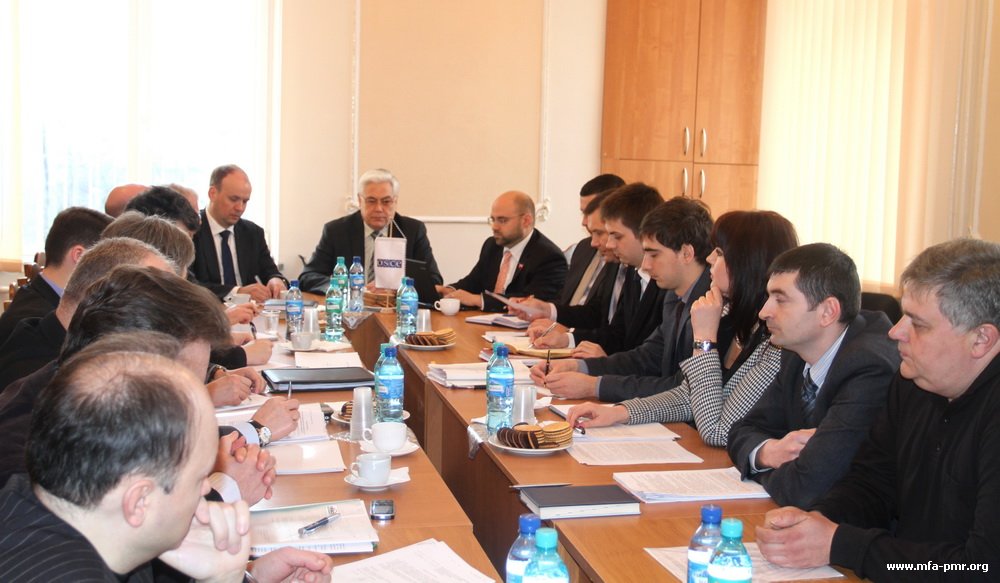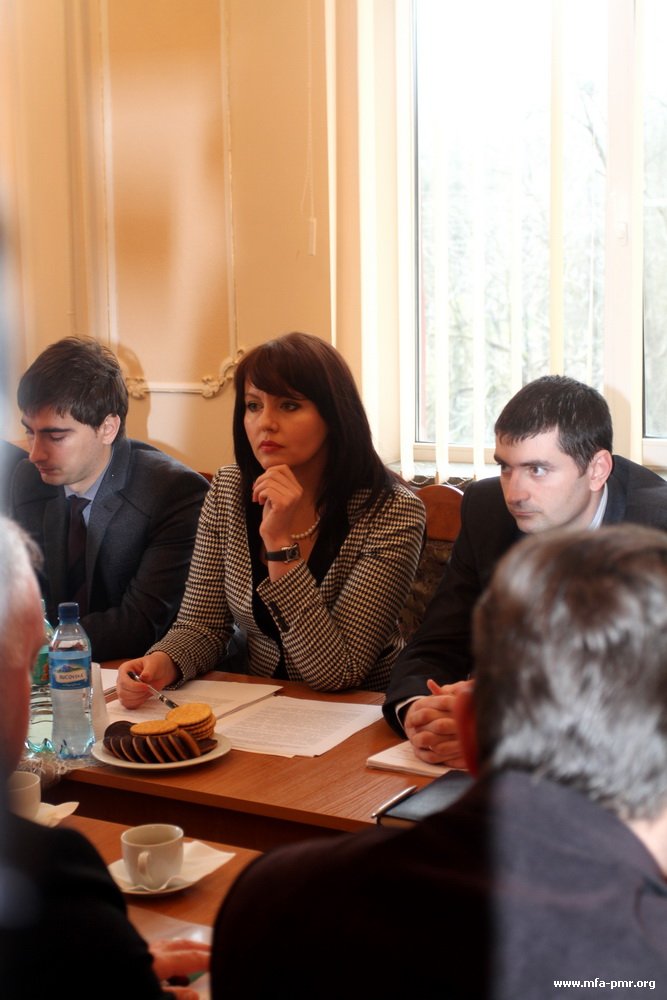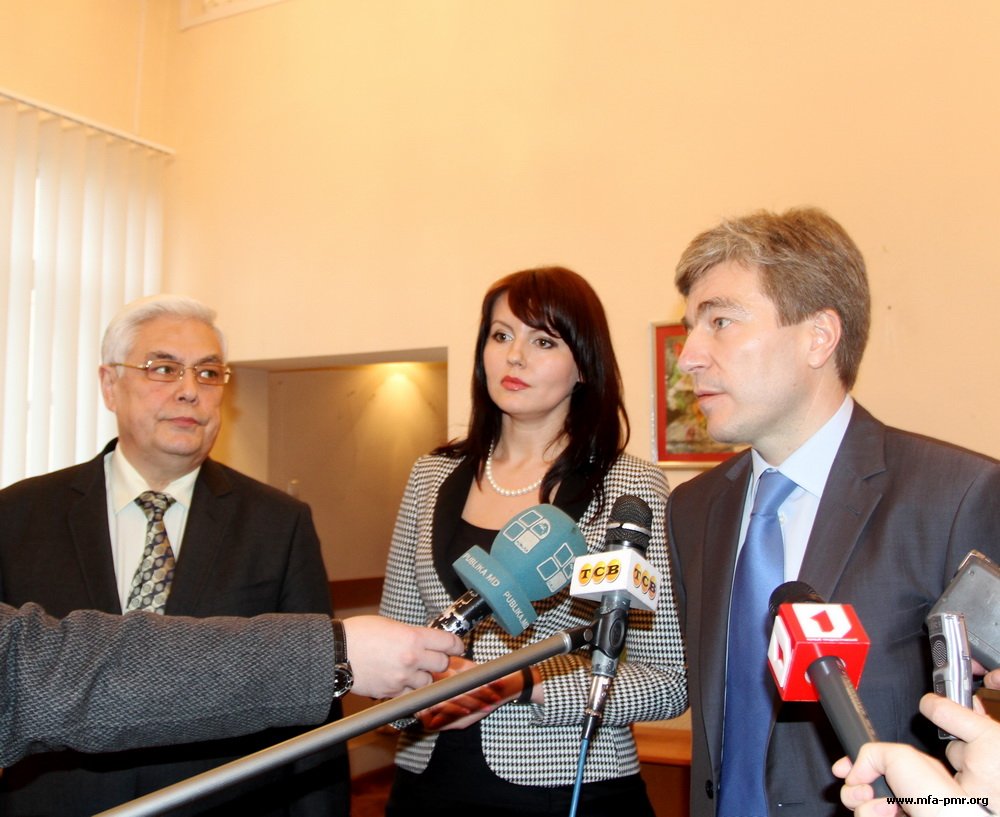Today political representatives of Pridnestrovie and the Republic of Moldova Nina Shtanski and Yevgeny Karpov met at the OSCE Office in Tiraspol. As it was reported the day before, the meeting was initiated by the Pridnestrovian side.
The meeting of political representatives was held in expanded format under participation of Expert (Working) Groups on Issues of Highway Transportation and Road Facilities as well as representatives of all “5+2” format participants.
The discussion was focused on several unadjusted provisions of the draft of the Protocol Decision “On Some Primary Measures to Provide Freedom of Movement for Population of Pridnestrovie and the Republic of Moldova”.
The 2-hour meeting resulted in final agreement on neutral registration plates for Pridnestrovian vehicles providing services as international cargo and passenger transportation. A white light-reflecting registration plate shall comply with relevant international standards. It shall contain “AB” symbols and five figures of black colour in consecutive order. The plate shall be covered with invisible film. Politically uncharged neutral emblem depicting trucks and buses on this film can be seen if light refraction angle is 45 degrees. Decision on agreement of the registration plate will be shortly formalized in the meeting protocol.
Another issues being an important part of the draft of the Protocol Decision refers to finding a mutually acceptable procedure of issuing permits for international passenger and freight traffic by Pridnestrovian economic agents. “Opinions on the scheme of issuing permits for agents engaged in international cargo and passenger transportation are different. We have not yet come to any decision. At the same time the meeting indicated willingness of parties to compromise,” Nina Shtanski commented. In particular, an important point was made to the intention of the Ukrainian OSCE Chairmanship to assist in developing a mutually acceptable approach to the mechanism of transfer of permits through the organization of workshops involving relevant experts from Ukraine and Russia as well as other international actors.
So, parties have preliminarily agreed to hold a meeting next week at the level of expert groups to develop process scheme of permits transfer to Pridnestrovian carriers. During the scheduled workshop international experts shall define compliance of the scheme with international standards. In view of the sharp social significance of the issue, the Pridnestrovian side has requested to transfer the required number of permits for Pridnestrovian international passenger carriers on a temporary basis until elaboration of a final mechanism in this area.
Opinion on some initiatives of Government of the PMR and the Supreme Council of the PMR was voiced by the political representative of the Republic of Moldova beyond the agreed agenda of the meeting. According to Nina Shtanski, such issues lie within internal policy and are not subject to reference of political representatives. Therefore, they can not be set under discussion of political representatives of Pridnestrovie and the Republic of Moldova within the negotiation process.












